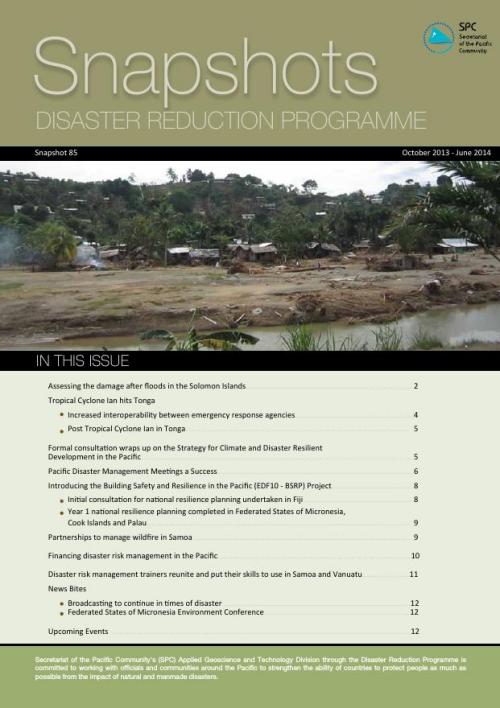Secretariat of the Pacific Community's (SPC) Applied Geoscience and Technology Division through the Disaster Reduction Programme is committed to working with officials and communities around the Pacific to strengthen the ability of countries to protect people as much as possible from the impact of natural and manmade disasters.
IN THIS ISSUE:
1. Assessing the damage after floods in the Solomon Islands
2. Tropical Cyclone Ian hits Tonga
- Increased interoperability between emergency response agencies
- Post Tropical Cyclone Ian in Tonga
3. Formal consultation wraps up on the Strategy for Climate and Disaster Resilient Development in the Pacific
4. Pacific Disaster Management Meetings a Success
5. Introducing the Building Safety and Resilience in the Pacific (EDF10 - BSRP) Project
- Initial consultation for national resilience planning undertaken in Fiji
- Year 1 national resilience planning completed in Federated States of Micronesia, Cook Islands and Palau
6. Partnerships to manage wildfire in Samoa
7. Financing disaster risk management in the Pacific
8. Disaster risk management trainers reunite and put their skills to use in Samoa and Vanuatu
9. News Bites
- Broadcasting to continue in times of disaster
- Federated States of Micronesia Environment Conference
10. Upcoming Events






